Russia Says Regional Free Trade Pact With Iran Possible Soon

A free trade zone deal between Iran, Russia and several countries in the vast Eurasian region is possible by the end of the year, Russia's TASS news agency reported on Monday.

A free trade zone deal between Iran, Russia and several countries in the vast Eurasian region is possible by the end of the year, Russia's TASS news agency reported on Monday.
Russian Deputy Prime Minister Alexei Overchuk told the state TASS agency that talks between the Eurasian Economic Union - which comprises Armenia, Belarus, Kazakhstan, Kyrgyzstan and Russia - and Iran are in their final stages.
"We are moving forward," Overchuk said. "We very much hope that such an agreement can be signed by the end of the year."
Both the region and Iran have taken on additional significance for the Kremlin after Western sanctions over Moscow's invasion in Ukraine limited Russia's foreign trade routes and forced it to look for markets outside Europe.
However, despite tighter ties between Moscow and Tehran since Russia invaded Ukraine in February 2022 and began big purchases of Iranian-made drones to attack the country, trade between the two markets have grown only moderately.
Russian-Iranian commodity turnover rose 20% in 2022, according to government data, but the monetary value of bilateral annual trade was less than $5 billion, negligible by international standards.
The regional agreement with Iran would replace and expand an interim pact that already provides a reduction in customs duties on hundreds of categories of goods.
In November 2022, Russia started swapping oil products with Iran and in March, Tehran said it counts on "huge volumes" of both oil and gas swaps with Moscow.
Overchuk also told TASS, without providing much detail, that negotiations among the Eurasian Economic Union countries on creating a common gas market continue.
Reporting by Reuters
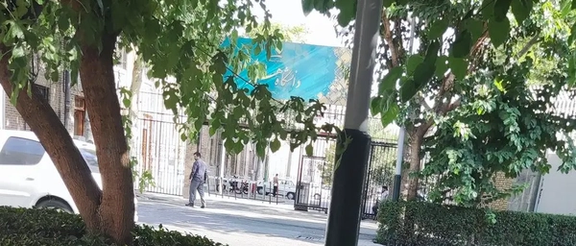
Various civic and popular organizations in Iran are joining the chorus of support for students in Tehran who have been staging protests against stricter hijab.
Support for defiance of stricter hijab by students who staged a sit-in against wearing a hood-like head covering Wednesday and condemnation of violence against them is growing.
Students in several other universities across the country and various social and political groups have expressed solidarity with the students at University of Art in Tehran.
A statement released by a group of Tehran University students Saturday told the authorities that "the policy of maximum repression” they have adopted in universities will ultimately fail “like other forms of repression” used against Iranian people.
Protesting students at the University of Art and their supporters released a short statement Sunday, which addressing the authorities, said students had “nothing to tell them except one word: NO!” and insisted that they would continue “to fight for freedom”.
Male and female plainclothes agents abducted at least ten students from the campus on Saturday and took them to an unknown location without any interference from police special forces who were present around the university. Student sources said all but two of the detained students were freed Sunday.
Students had been protesting new rules that require women to wear a pullover headscarf with stitched front (called Maghna’e in Iran) which is like a nun’s coif, completely covering the head and the neck. Failing to comply, the university has said, would result in suspension.
According to the popular Telegram channel of the National Student Unions Council, at about 2:30 am Thursday, Hamzeh Borzouei attacked a group of about fifty students who had begun a sit-in protest.
Iranian Writers’ Association in a statement published Friday supported the students’ action and said authorities and those who carry out their orders of repression will be responsible for any harm to the students.
In recent months, security and intelligence organs have increased pressure on students for hijab, presumably to stop the growth of the anti-compulsory hijab movement in universities across the country and suspended dozens of students.
In June Sepideh Rashno, a 29-year-old anti-compulsory hijab activist, said in an Instagram post that Al-Zahra University of Tehran had suspended her for two semesters. Rashno was tortured in detention into making a televised “confession” and condemning other activists as well as expressing regret for her confrontation with a hijab enforcer on a city bus in July last year and posting a video of the incident on social media.
Authorities have also been trying to isolate artists who supported the Woman, Life, Freedom movement or defied hijab rules.
Entekhab news website Saturday published the image of a letter from an official regulating the film industry, Habib Ilbeigi, to the chairman of film producers’ union in which filmmakers are ordered not to employ actors and others who have defied the hijab “or personally face the consequences” including refusal of a screening permit.
Police chief, Ahmad-Reza Radan, said earlier this week that the government of President Ebrahim Raisi has approved extra funds to install more hijab surveillance cameras and that four special task groups have been launched to continue the war against hijab rebellion including one that will monitor social media platforms to identify those who publish photos of themselves without hijab.
Anti-hijab and anti-regime protests erupted in Iran in September 2022 after Mahsa Amini, a young woman was arrested in the street by the notorious ‘morality police’ and received fatal head injuries during here detention and later died in hospital.

Documents leaked by a hacktivist group shows that Iran was expecting Ukraine to severe diplomatic ties over Tehran's supply of weapons to Russia.
Confidential letters published by the group Uprising till Overthrow revealed that the regime officials are aware their support for the Russian invasion of Ukraine may lead to criminal cases against Tehran for its involvement in the war.
Referring to the annulment of at least five agreements between Iran and Ukraine over the issue, the documents pointed out that Kiev has also sanctioned a large number of Iranian officials and also rejected calls for negotiations by the Islamic Republic.
The point that comes across in the hacked letters by General Staff of the Armed Forces of the Islamic Republic of Iran and the foreign ministry sent to the president’s office is that they know very little about the military cooperation with Moscow, suggesting that it is handled by the Revolutionary Guards, most probably with the approval of Supreme Leader Ali Khamenei.
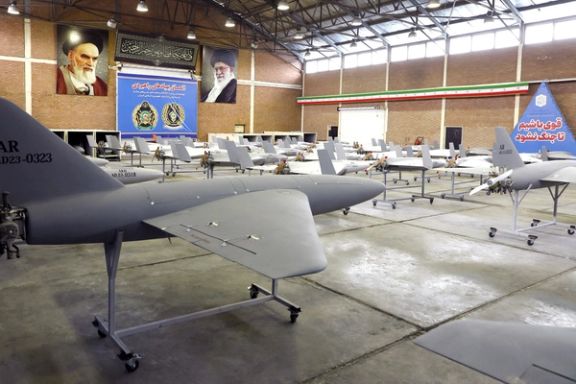
Rolling with the punches, the organizations offered a number of suggestions to compensate for the “loss of dignity” by making demands from the Russian government.
In the documents, the General Staff asked the government not to deny Iran’s involvement in the war and its supply of drones to Moscow because the European and other Western countries are evidently sure about the military support.
Among the ways to dampen the effects of Iran’s support for the Russian invasion of Ukraine is holding talks with Kyiv officials to keep the channel of interaction open between the two countries.
The correspondence with the president’s office shows the regime’s concerns over the Ukrainian government downgrading relations with the Islamic Republic, calling for planning for such a scenario through preparing the regime’s embassy in Moldova to handle consular matters.
The Ministry of Foreign Affairs emphasized that the diplomatic missions of the regime in European countries should become more active so that they can be aware of the possible plans of European countries for any possible legal action against Iran, implying that they are aware that regime officials can be prosecuted for their involvement in the war.
Noting that 37 countries have filed lawsuits against Russia at the International Criminal Court, the ministry said that such a lawsuit can also be filed against the Islamic Republic.
The hacktivist group ‘Uprising till Overthrow -- affiliated with the Albania-based opposition Mojahedin-e-Khalq (MEK) group -- produced documents in May showing that it breached 120 servers of the presidential office, getting access to internal communications, meetings minutes, President Ebrahim Raisi’s online conference platforms and about 1,300 computers inside the offices. The MEK-affiliated group has been releasing the documents on its social media accounts.
Iran has repeatedly denied sending armed drones to Russia after Moscow launched its invasion in February 2022, claiming that any shipments occurred before the war.
However, Russia has used hundreds of Iranian-made drones to attack Ukrainian infrastructure and civilian targets, with Kyiv reporting more supplies in December as Moscow’s stocks were used up.
Western powers have strongly objected to Iran's decision to arm Russia with Kamikaze drones, and possibly other weapons and ammunition.
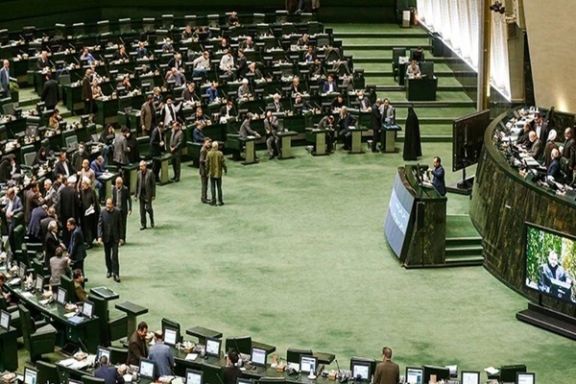
An Iranian lawmaker who disclosed a bribery scandal involving SUVs to MPs to prevent an impeachment says he is still barred from speaking during sessions.
Ahmad Alirezabeigi told Rouydad24 news website in Tehran that his access to his microphone at the parliament (Majles) was cut off even before the legislature’s supervisory board attended to his case. He added: "The Speaker of the parliament read out the verdict against me before it was issued by the board!"
On Sunday some unconfirmed reports emerged that the ban has been lifted, but he has still not been observed speaking in the parliament.
Iranian authorities have confirmed that some 300 SUVs were given to the Majles at a highly discounted price ahead of a proposed impeachment of the minister of industry in 2022, but Alirezabeigi says still 153 are unaccounted for and no one knows who took delivery of those vehicles.
Alirezabeigi further added that barring lawmakers from addressing the parliament is not part of the Majles Supervisory Board's authority, and Speaker Mohammad Bagher Ghalibaf has imposed the ban arbitrarily. He said lawmakers are entitled to challenge any verdict by the board, but he cannot do anything at the time being as the verdict has not been officially announced.
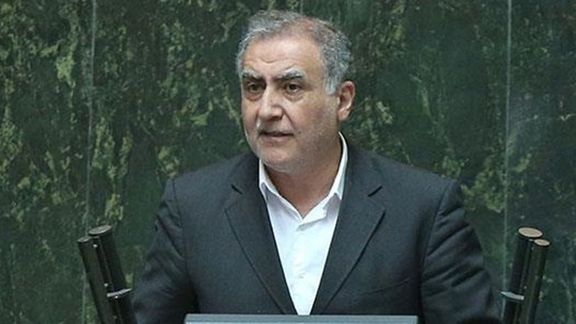
The lawmaker says he was also called to a court of justice in May to respond to questions, but he was told that there are no charges against him as no one has filed a complaint about the matter.
"I found out later that the minister in question has sent a letter about the issue to the Iranian judiciary, but he had not even named me in that letter," Alirezabeigi said, adding that "by barring me from speaking at the Majles, the authorities have deprived the people in my constituency of their voice being heard."
Meanwhile, an outspoken former lawmaker, Gholamali Jafarzadeh Imanabadi has likened the lawmaker's punishment to the shelling of the parliament by anti-constitutionalists at the beginning of the 20th century. Imanabadi further charged: "The Majles is no longer the House of the People. It is a place where the presidium dictates whatever it deems right."
He explained that giving the SUVs to lawmakers at a discounted price is a concession they should have not accepted. He said although they have paid for the cars, but they ignore the fact that the vehicles are worth much more in the market and not everyone can get those cars at the price they think they have purchased it. "Would they sell the cars to you at such a discounted price if you were not members of parliament? Certainly no!"
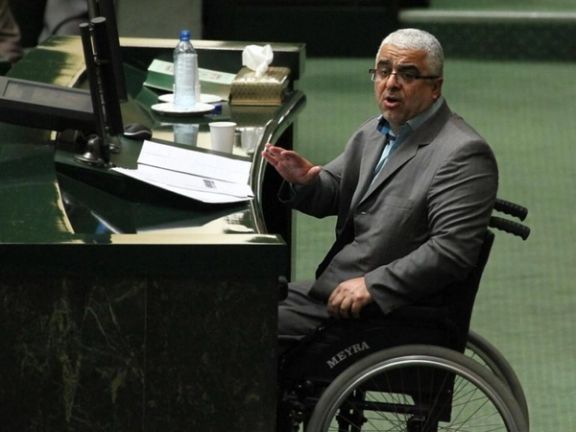
He emphasized that the parliament should have not been allowed to bar a representative of the people from speaking. The Majles has pretty much cut off the voice of all those who had voted for this representative.
Imanabadi said the presidium of the Majles should have taken action about the bribery instead of barring the lawmaker from speaking about corruption. Citind parliament’s by-laws he said, “You cannot bar a lawmaker from speaking even if what he says is tantamount to libel.” Instead, anyone who believes has been offended will be given time to defend or explain.
Imanabadi said: "It is surprising that the other lawmakers are silent about this matter. This could have happened to any one of them." He added that according to a former speaker of the Majles, Mehdi Karroubi, cutting off a lawmaker's microphone “is a sign of despotism."
Imanabadi further suggested that Alirezabeigi should resign in protest.
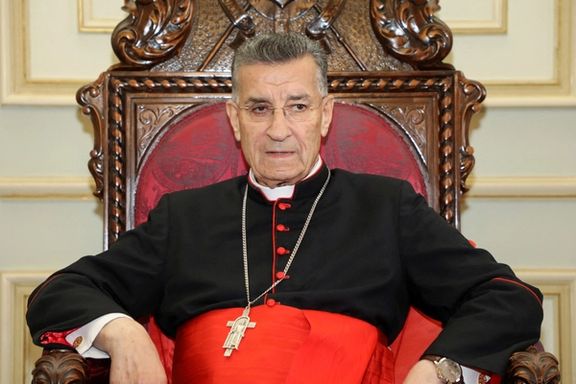
Lebanon’s top Christian cleric said on Sunday the constitution had been violated in "cold blood" during a failed attempt to elect a new president last week, and warned that divisions in the nation had widened.
Patriarch Bechara Boutros al-Rai spoke in his first sermon since the Iran-backed Shi'ite group Hezbollah and its closest allies thwarted an attempt by factions including the main Christian parties to elect an IMF official as president.
Wednesday's events marked the 12th time parliament failed to elect someone to the post - reserved for a Maronite Christian in Lebanon's sectarian system and vacant since the term of the Hezbollah-allied Michel Aoun ended in October.
Rai, a critic of the heavily-armed Hezbollah, called Wednesday's session a "farce".
Rai has previously voiced criticism of Hezbollah, including in 2021 when it launched rockets at Israel.
The standoff has played out along sectarian lines with Christian parties supporting Jihad Azour, the IMF's Middle East director and an ex-finance minister, and Shi'ite factions Hezbollah and Amal against him.
Many Lebanese blame Iran for backing Hezbollah and interfering in the country's politics.
Azour won votes from 59 of 128 lawmakers, short of the 86 needed to win a first round vote. Suleiman Frangieh, a Hezbollah-backed Christian, got 51.
The Hezbollah-allied Parliament Speaker Nabih Berri ended the session when Hezbollah and its allies withdrew, denying a quorum for a second round when 65 votes are needed to win.
Greek Orthodox Archbishop Elias Audi, in his Sunday sermon, criticized Hezbollah and its allies without naming them, saying those who withdrew appeared "uninterested" in Lebanon.
Hezbollah and its allies attacked Azour, calling him a candidate of confrontation. Without naming him, Lebanon's Shi'ite mufti accused him of being backed by Israel.
Reporting by Reuters
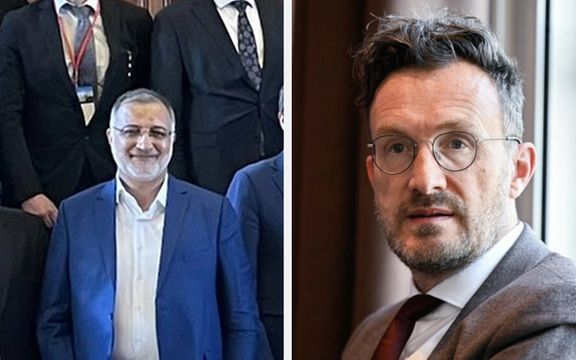
A senior Belgian official has resigned from his post following the pressure that followed his invitation of Tehran’s mayor, a hardline regime insider.
Pascal Smet, the Secretary of State for European and International Relations for the city council of the Belgian capital Brussels, announced his resignation at a press conference earlier in the day, saying that one of his employees made the mistake of inviting the Iranian hardliner, Alireza Zakani, the mayor of Tehran.
Zakani was a hardline member of parliament before becoming a candidate in the 2021 presidential election and withdrawing in favor of Ebrahim Raisi. He also served as the head of IRGC’s Student Basij paramilitary forces and had a prominent role in cracking down on students during popular protests in July 1999.
So deep was the controversy, Smet announced his regret in a statement: "I regret that I gave the impression that the Iranian regime is welcome. I assure you that it was not my intention to hurt anyone and that my moral compass is very high. For all these reasons, but mainly because of the accommodation costs, the mistake my employee made, I have decided to resign as Secretary of State."
Darya Safai, a Belgian-Iranian member of the Belgian Parliament, had led the campaign for Smet's resignation. In a tweet on Sunday she said that his stepping down followed days of work by her party to condemn the invitation of an Iranian delegation to the Urban Summit in Brussels.
Safai added that the responsibility lies with the Minister of Foreign Affairs Hadja Lahbib, who issued the visas after individual evaluation. She said her party is set to grill Lahbib this week for not only the invitation but her cooperation with Iranian officials and the prisoner swap deal with Iran that led to release of Iranian diplomat convicted of terrorism, Asadollah Assadi.